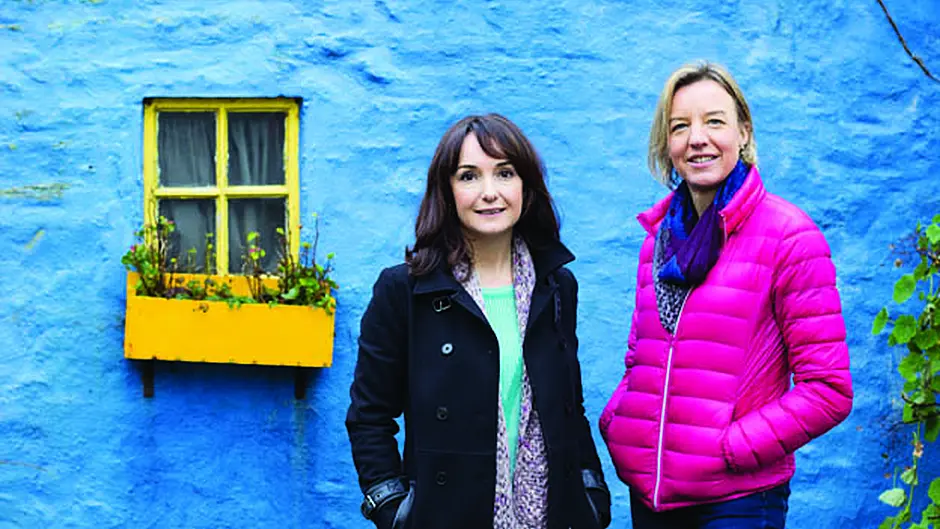West Cork people are being transparent in their growing discontent with single-use plastic. Many are taking initiatives to arrest the devastating consequences that plastic waste is inflicting on the planet, writes Aisling Meath
WEST Cork people are being transparent in their growing discontent with single-use plastic. Many are taking initiatives to arrest the devastating consequences that plastic waste is inflicting on the planet.
‘Everybody is waking up to this crisis and we are learning how to deal with it as we go along,’ said Ciaran Fitzgerald, manager of the Blue Haven Hotel in Kinsale. ‘We are doing tangible things that can be broken down into small deliverables.
‘For example, we are ditching plastic straws, only stamping loyalty cards if a reusable cup is used, and are putting a new waste management system into place to deal with our recycling. Bart Przemyslaw is currently researching and training up the rest of our staff in our new waste management practices. We have been inspired by the recent initiative Plastic Free Kinsale, who are growing awareness in our local businesses and schools,’ said Ciaran.
Tara Shine and Madeleine Murray, who met through their local open water swimming group, launched Plastic Free Kinsale on January 25th. Together they sparked a community initiative aimed at reducing unnecessary plastic use and increasing recycling awareness.
Paula Marten, an artist and teacher from Baltimore also enjoys open water swimming. She features local people on her blog ‘Sea Spell Swimming’ sharing their ‘Turning the tide on plastic tips’.
‘Taking action on reducing plastic can feel overwhelming and not something that can be done overnight,’ said Paula, ‘but I believe West Cork can be a front runner in changing practices.’
Non-sustainable single-use plastic accounts for a staggering 128m tonnes – or 40% – of global plastic production. And plastic waste found in our oceans is now estimated at 46,000 pieces of plastic per square mile.
The motion of the tides, along with sunlight, causes them to fracture into small particles called microplastics and scientists have found traces of manmade fibre and plastics in the stomachs of sea creatures living at the bottom of the deepest oceans of the planet. No part of the world’s oceans remains untouched by human waste.
One million seabirds and 100,000 marine mammels are killed annually due to plastic contamination. In 2014, a broken piece of a DVD case was found in the stomach of a beached whale.
‘Refuse and reuse,’ is the motto of Maggie Minnion, a recipient of an eco award by the Cork Environment Forum. Maggie goes to the farmers’ markets throughout West Cork with her ‘Filling Station’ offering an eco-friendly refilling service with over 20 household products. Customers can bring their own reusable bottles to fill up with over 20 different household products. She also sells bamboo toothbrushes and socks.
‘Disposable lighters, straws and pens are some of the worst offenders,’ said Maggie. ‘Change happens with small steps and one of the things I would encourage people to do is bring their own reusable cups bottles cutlery and condiments when they travel thus cutting down on snacks and drinks served in single use plastics,’ she said.
Gloun Cross Dairy in Dunmanway is run by the O’Donovan family producing their milk in old fashioned reusable glass bottles, and they won the double gold award in the Blas na hEireann awards in 2017 for their milk and cream.
‘We use glass bottles to bring out the real taste like milk should be,’ said Liz. ‘Our aim is to cut down on recycling and a customer gets a refund when they return the bottle to the shop.’
In Skibbereen, at the Marsh Road bring site, paper, plastic and cardboard are accepted in a mixed format. The material is placed loosely in a compactor where it is compressed for onward bulk transportation. It is due to be upgraded shortly and it is proposed to introduce a system for black bag/domestic waste disposal.
‘Our current service provider for recyclable materials is KWD Recycling,’ said a Cork County Council spokesperson. The mixed compacted material is delivered to their purpose-built material recovery facility at Forge Hill Recycling facility in Cork.
This facility is licensed by the Environmental Protection Agency and caters for up to 82,000 tonnes of mixed dry recycling annually.
It is then separated into individual waste streams through a combination of sophisticated mechanical and manual recovery operations. These individual waste streams are then baled and quality-checked prior to shipping.
Where the material gets shipped is very market-dependent and can vary. At present, China is still the final destination for the paper and cardboard materials, which are currently being shipped via India and Indonesia.
There is still a market for the material in China, but a very high quality of recyclables is being demanded. The plastics which comprise approximately 10% of the mix are currently being shipped to Poland, where there is a market demand at present.







